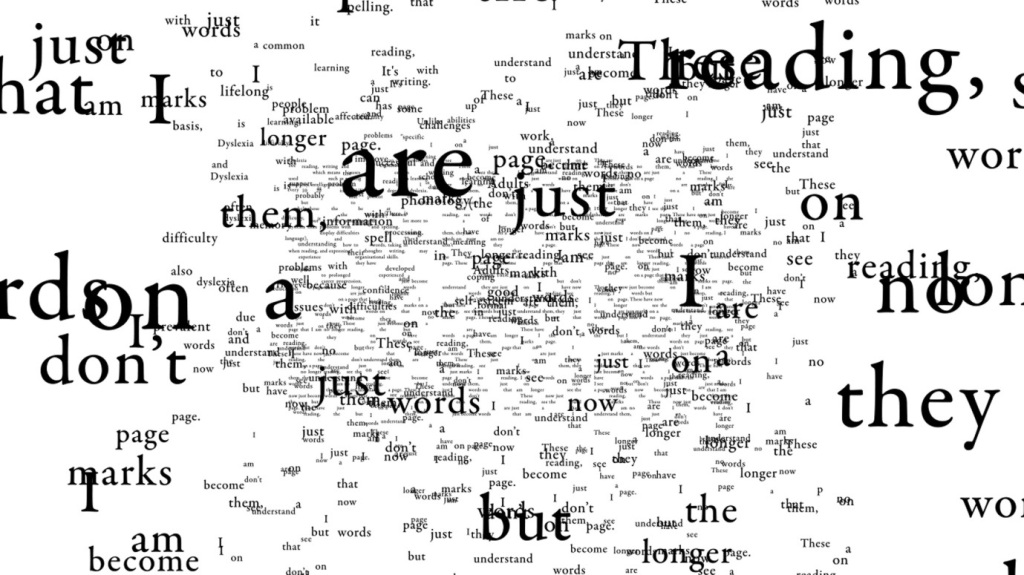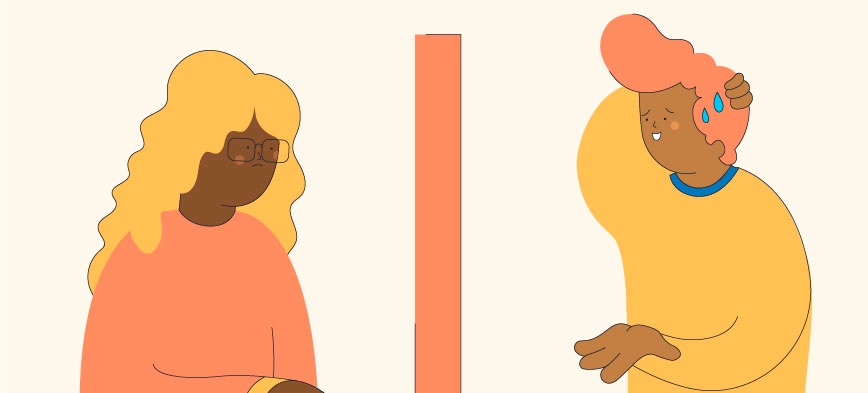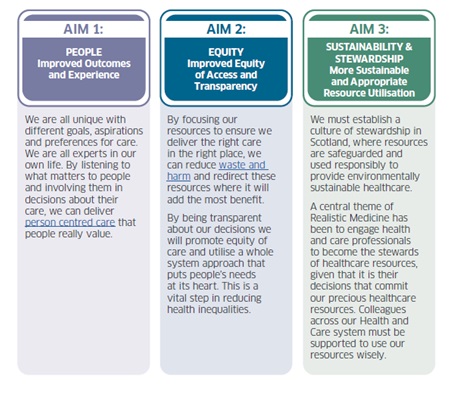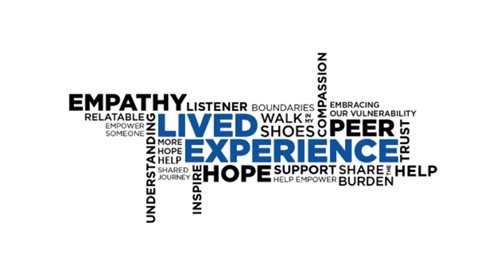To mark LGBT History Month, the Dumfries & Galloway HSCP LGBT+ Staff Network reached out to our Allies to ask them what being an LGBT+ Ally means to them. These wonderful folk have signed up to the Pride Pledge to show their support and understanding for members of the LGBT+ and ethnic minority communities working within NHS Dumfries and Galloway Health & Social Care Partnership.
Wearing the Pride badge has a huge impact for both staff and patients/clients, knowing they can approach and speak to a person who is supportive, understanding and non-judgemental towards their specific characteristics is massively reassuring. You can sign up for the Pride Pledge and Badge by contacting dg.ODL@nhs.scot.
We’re delighted to share reflections on allyship and the value of the Pride Badge from four of our Allies: Karen Clapperton, Jan Crooks, Euan MacLeod and Nick Morriss and are very grateful to them for their contributions.
If you’d like to join the LGBT+ Staff Network, or support us as an ally, get in touch at dg.LGBTNetwork@nhs.scot
Anne Allison
Chair, LGBT+ Staff Network
Karen Clapperton, St Michaels and New Abbey Community Nursing Teams
I am very happy to be a LGBT+ ally and I wear my badge with pride (see what I did there?). I have a lovely story I would really like to share.
Some time ago, I had arranged to meet a student who was joining my team to do her penultimate nursing placement. I went to the meeting place arranged and was met with a wee bit nervous, but warm and friendly smile. I introduced myself and off we went.
We had a lovely day, she was friendly, down to earth, keen to learn and very good with the patients.
A few weeks into her placement, she told me that she had never come out as gay during her placements until the very end and usually after she had been graded. I asked why and she said that she normally felt uncomfortable because she had heard people talking unkindly about gay people she was always guarded. She said on the first day when I went to meet her, she noticed I was wearing my NHS pride badge and she felt relaxed and that she could be herself.
I can’t deny that it is a bit disappointing that it took nearly to the end of her 3 years of training to feel comfortable enough to be open and be herself but she wasn’t like that with me simply because I was wearing my wee badge! You never know the difference the smallest gesture can make to someone. Congratulations to the team responsible for the badge pledge project. It has made a difference!
I am happy also to report that she qualified and has made an excellent, caring, compassionate and conscientious nurse. She wears the wee badge too!
Jan Crooks, Family Nurse Partnership
I pledge to ensure within my work, volunteering and personal life that;
- I welcome the entire diversity of LGBT and community
- I try my best to never make assumptions about pronouns
- I will never be judgmental
- When I ask anyone’s names, I will also ask how they want me to address them
- I will respect and use the pronouns my clients and everyone I meet in my life asks to be called
- I will apologise if I get things wrong and will reflectively learn if I do
- I value individuals for who they are
- I ensure that within my clinical practice I promote and practice the health, well being and equality of everyone
- If I am unsure about anything I will ask the individual and will seek advice from recognised LGBT support networks
- I will support my colleagues, friends, family, volunteers I meet, to prioritise all the things I pledge
Euan McLeod, Strategic Planning and Commissioning
Prejudice has many faces – sometimes it is overt and destructive-sometimes it is more subtle and disguised-but whatever form or face it presents it needs challenged. That is why being an ally is important – I am happy to do my bit to challenge that prejudice.
I know many people who have faced prejudice because of their orientation – within my Christian circles this has provoked much dialogue – some of it constructive, some less so.
Rob Bell in his book “Love Wins” writes about the need to recover the message of love within the Christian doctrine, “Love Wins” is an affirmation to triumph over hate, discrimination, and other negative energies. It calls for people to recognize the power of love and its ability to overcome obstacles encouraging understanding and nurturing balance. Why wouldn’t you?
Nick Morris, Chair, NHS Dumfries and Galloway
I have spent 43 years working in Health and Social care across a range of organisations, and throughout that time the most enjoyable times have been spent in teams where we challenge each other, learn from each other and value the contributions that others have brought to the work we deliver
No one person will have the answers to all the challenges we face. A strong team that draws on the diversity of its members is more likely to develop an approach that best meets the needs of the patient, the staff and the organisation. To gain this advantage however, all members of the team need to respect the contribution of all the members. We all walk in our own shoes and whilst we might try to gain an understanding of someone else’s lived experience, we can never truly feel or think as others do – hence we need to enable a culture that enables the voice of all members so that we all feel an equal part of the team that benefits from the unique insights we all bring
How does this relate to the LBTI+ workforce and my role as an LGBT+ Ally?
An organisation that respects the diversity of thought and opinion of all its members is one that is likely to effectively meet the needs of the people who look to us for support. An organisation that is in conversation with itself, encourager debate, is curious to learn and to challenge what we do, why and how we do it and how we can improve, is safer for its staff and its patients. (Michael West et al).
Such an organisation will have a thorough respect and a positive attitude to all the diversity of its membership. The equality and respect with which this organisation provides to the LGBT+ community within us and as part of the D&G population is a test of the approach we take generally, and if, as an LBTG+ Ally, I sense that all members of that community are being treated fairly, equitable and respectfully then it gives me confidence that we would treat all other individuals in a similar manner.
Not all of us will get it right at all times – as I said we cannot walk in each others shoes. So sometime our divergent life experiences will mean we believe, say or do something that is unintentionally contrary to that which best affords respect to the LGBT+ community. However a curiosity in the colleagues you work with and an open dialogue leading to new learning will mean we all develop and grow more harmoniously as time goes by.
While ‘unintentional’ actions and statements are part of the learning process of complex societies, purposeful disrespect is never tolerable. So whilst our collective work is to improve harmony and respect through positive conversations about difference, similarity and learning, we must all stand together to call out purposeful disrespect to each other





